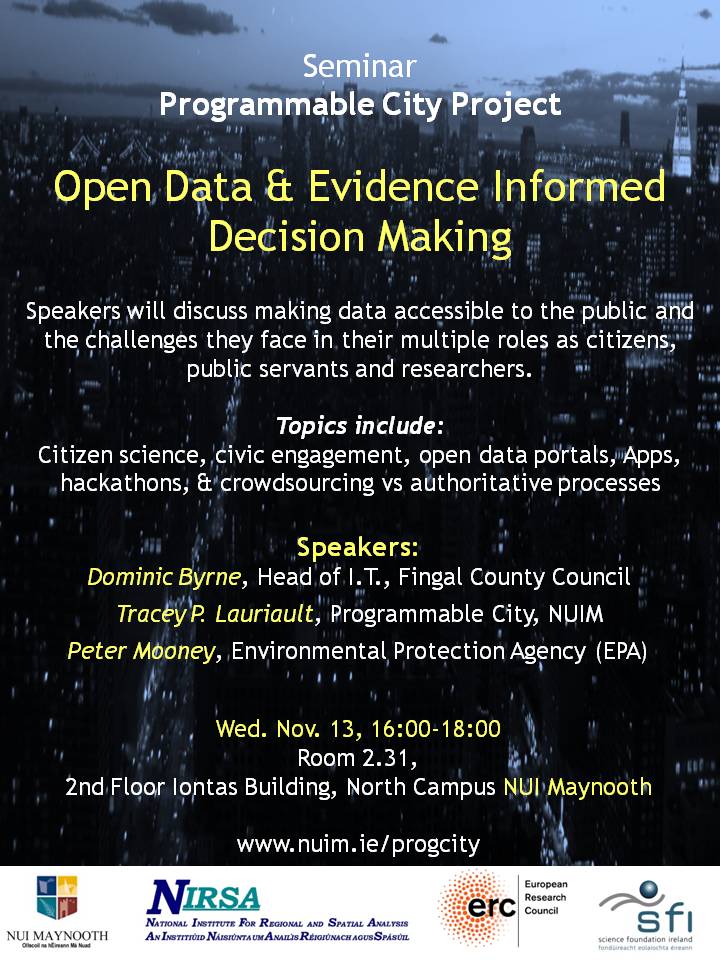Happy new year and welcome back!
We will be having our first seminar in the new year (2nd in the seminar series). This time, we have invited Andrea Magnorsky (Organisor and Co-founder of GameCraft and BatCat Games) and Aphra Kerr (Sociology, NUI Maynooth) to give talks on “Coding Play/Crafting Code in the City“. Looking forward to seeing you here!
Time: 16:00 – 18:00, Wednesday, 15 January
Venue: Boardroom, 2nd Floor, John Hume Building, North Campus, NUI Maynooth
Speaker bios:
Andrea Magnorsky is Senior software developer with many years of experience building a variety of products, including CRM, eCommerce, Financial, and Video Games. She is an advocate of test-driven development, and object-oriented design principles, as well as a part time lecturer on Games Programming. She is organisor and Co-founder of GameCraft Foundation which organises weekend game jams both in Ireland and internationally and co-founder of BatCat Games. BatCat Games are currently working on Honorbound, a 2D, side-scrolling beat ‘em up game focused on combat in a feudal Japanese setting. Their first game P-3 Biotic is a space shooter available on PC from GetIrishGames.ie.
Aphra Kerr is senior Lecturer and researcher in social studies of technology and media. She also teaches courses on games and play, and culture and everyday life. She has extensive research experience on the production, use and regulation of digital media, especially digital games, SNS (social networking sites) and animation, as well as the changing nature of broadcasting in the digital age. Her current research projects include ‘Cultural Production in the Digital Age’ (NSF funded network) and she is currently writing ‘Global games and transnational work’ (book under contract). For the past ten years she has been involved in running gamedevelopers.ie, a community voluntary website for the games industry in Ireland.


